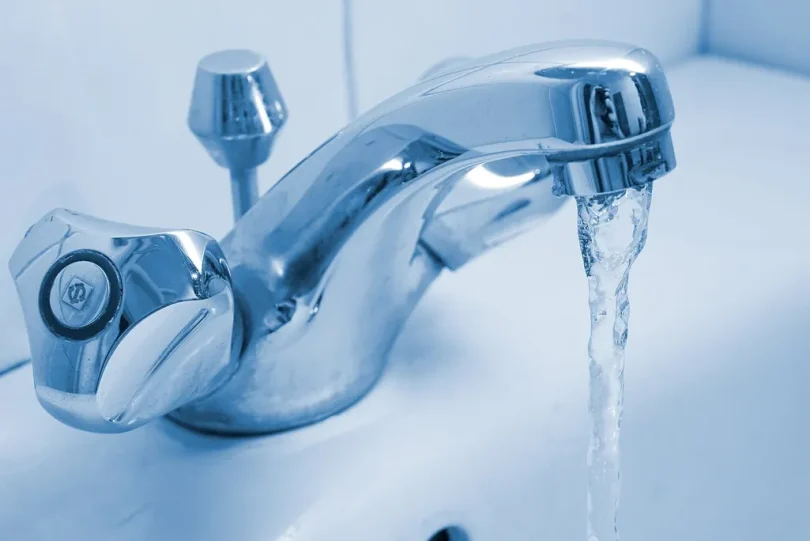aWater softeners are a big help with hard water problems that lots of homes deal with. Hard water is full of stuff like calcium and magnesium and can cause all sorts of trouble, like blocking pipes and making your appliances work less well.
This means you might end up paying more for repairs and replacements. Picking the right water softener is super important for keeping things running smoothly and saving cash.
A good one stops that pesky scale from forming and helps your home gadgets last longer, which saves you money in the long run. So, make a smart choice and enjoy the benefits!
How Salt-Based Water Softeners Operate
Salt-based water softeners are great at sorting out hard water problems. When water with lots of calcium and magnesium flows in, tiny resin beads swap those minerals out for sodium ions. This swap stops stuff from building up in your pipes and appliances.
Salt’s a big deal here because it keeps the system clean and running well by refreshing those resin beads with sodium ions now and then. These systems are super handy in places where the water’s really hard.
They help keep your washing machine and other gadgets in good shape and cut down on repair costs. Basically, they make everything run smoothly and save you money in the long run.
Environmental and Health Implications of Salt-Based Water Softeners
Salt-based water softeners make life at home easier, but they come with some things to think about for nature and our health. When they run, they create salty water, which can mess with local wildlife if it gets into rivers or lakes.
Too much salt in water can bother the fish and other creatures living there, especially in places where there’s already a lot of salt. It’s a big deal for plants and animals.
For folks who need to watch their salt intake, like those with high blood pressure, even a bit of extra salt can be a concern.
So, people often start to consider other options. If you’re really into protecting the environment or live near delicate ecosystems, you might find salt-free systems more attractive.
And if you’re watching how much salt you eat, you might want a system that doesn’t add any more. Thinking about all this can help you choose the best option for yourself and the planet.
How Salt-Free Water Softeners Work
Salt-free water softeners are a cool way to deal with hard water without using salt. They use crystallization and filtration to stop scale buildup. Crystallization changes minerals into tiny crystals that don’t stick to things anymore.
So, while the minerals are still in the water, they won’t cause problems in your pipes or appliances. Filtration works by catching and holding the minerals so they can’t form scale.
One of the best things about salt-free systems is they’re better for the environment. They don’t release salty water into nature, which is good for eco-friendly folks. Plus, they keep the good minerals in the water, which some people prefer.
They’re also easier to look after compared to salt-based ones. You don’t have to keep adding salt or worry about regeneration cycles.
Usually, you just need to replace filters or clean the media now and then. This makes them a great low-maintenance choice for anyone wanting a simple fix for hard water issues.
Long-Term Cost Analysis of Salt-Based and Salt-Free Water Softeners
When you’re thinking about the long-term costs of water softeners, you’ve got to look at both salt-based and salt-free ones.
At first, salt-based ones might seem cheaper since they’re easy to find and don’t cost much to buy. But, you’ll keep spending on things like salt and maybe even paying a professional to install them, which can add up.
Salt-free systems, on the other hand, cost more upfront, but you’ll save money in the long run. You won’t need salt or to change parts often, which keeps costs down.
They’re also easier to install, so you might not need to hire anyone, saving on labour. Plus, they don’t need much maintenance—just a bit of filter changing or cleaning now and then.
Both have their perks. Salt-based ones are great for stopping scale buildup, which helps your appliances last longer. Salt-free ones are better for the planet and might save you money on plumbing repairs because they prevent scale too.
In the end, it’s all about what you prefer, how much you want to spend, and what you think will save you the most over time.
Maintaining Your Water Softener: Salt-Based vs Salt-Free
Keeping your water softener in good shape means it’ll work well and stick around for longer. If you’ve got a salt-based system, you’ll need to check the salt levels often and refill the tank when needed.
Give it a clean every few months to stop it from getting clogged up and running badly. Skip this stuff, and you might end up with a broken system and hefty repair bills.
Salt-free systems are way simpler to deal with. They just need a new filter or a clean every 5 to 10 years, depending on the type and your water. This easy setup is great if you don’t want to fuss over maintenance.
No matter what system you’ve got, it’s a good idea to follow what the manufacturer suggests for keeping it up.
Looking after your softener means it lasts longer, protects your investment, and gives you a steady flow of nice, soft water. Doing regular maintenance also saves you time, cuts costs, and keeps worries at bay.
Choosing the Right Water Softener
Choosing the right water softener might seem tricky at first, but it gets easier if you know what to look for. Start by checking how hard your water is; this helps you pick the right type and size of softener. Bigger families usually need a stronger system because they use more water.
Don’t forget to think about your budget. Salt-based softeners might be cheaper to start with, but you’ll spend more on salt in the long run. On the other hand, salt-free ones cost more upfront but save money over time.
Here are the main factors to consider:
- Space: Look at how much room you have for the softener. If space is tight, you can get a smaller model.
- Maintenance: Think about how much time you want to spend on keeping it running. Salt-free systems need less work and are great if you want something easy.
- Environmental Impact: If you care about the environment, salt-free options are kinder to the planet.
Getting help from a pro can really make a difference in picking the right softener. They can give you tips that fit your home perfectly, making sure you get a system that works well and makes life easier.
Conclusion
Picking between salt-based and salt-free water softeners can be a bit of a head-scratcher, but knowing what makes them different can help.
Salt-based ones are great at getting rid of hard minerals, which means your appliances last longer. But they do need regular upkeep and aren’t the best for the environment.
On the flip side, salt-free systems are easier to look after and kind to the planet since they stop scale without taking out minerals. When you’re deciding, think about how much you want to spend, how hard your water is, and how much you care about the environment.
Picking the right one means your home and lifestyle get the best fit, and you’ll love having a well-kept water softener.





